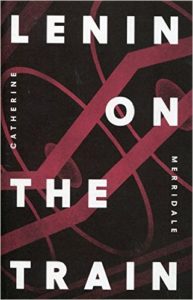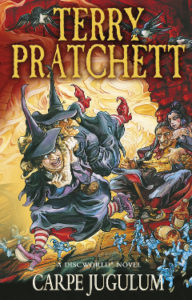Reading as a Hugo voter is a funny thing. I’ve been aware of the Hugo awards for more than 30 years now, some of the winners have been among the best things that I’ve read, and I’m thrilled to be a part of the process for the first time this year. I’m getting to play a small part in giving this award that has meant a lot to me, isn’t that neat? I’m full of squee, as the saying goes.
Still, reading for the award changes my reading process. (Writing about books so regularly here has also changed how I read, somewhat, but that’s another story.) No matter how deeply I have sunk into the reading experience, evaluation is lurking somewhere in the background of my mind. How does this work stack up against the other five finalists? Above or below the baseline established by the first finalist I read in this particular category? Is it doing something that’s been done many times before? Is it trying something new, or at least something that appears new to me? How does it stack up?
Penric and the Shaman is the second story of Penric, a young scholar and divine, and his much older demon, and I would not have read it just now if it had not been nominated for a Hugo in the category of Best Novella. I would definitely have started with the first story in the series, because I am like that, although Bujold provides enough background that the story is perfectly understandable without having read the other one first.
Penric’s world is a fairly standard fantasy setting: vaguely medieval technology, a feudal system of government not terribly unlike England’s, a European geography of temperate climes and numerous small polities. The dominant religion centers on five deities, who are demonstrably real and accessible to people in this world, including Penric himself on at least one occasion that he recalls. Spirits and demons are also present, if not necessarily in abundance. Penric’s demon, Desdemona, is a presence inside of him, separate, given to promoting chaos, and possessing certain magical abilities. Penric himself is in his early 20s, but has advanced quickly in training as both a sorcerer and a divine thanks to Desdemona’s presence.
Bujold tells the stories of Penric and the Shaman from three different points of view. The novella opens with Inglis wondering whether the nearby vultures will feast on him. He is stuck on an icy slope, pinned by rocks after a fall. A dog seems to appear, Inglis hears voices, and he cannot tell whether this is real or vision by the time consciousness slips away. In the next section, Penric is immersed in a translation, which Desdemona finds frightfully dull, when his patron and liege lady calls him in for consultations. A Senior Locator from the capital has come to their remote home in search of a young nobleman who has fled before an accusation of murder, an accusation, in this instance, with occult overtones. Oswyl, the Locator, provides the third point of view in subsequent chapters.







